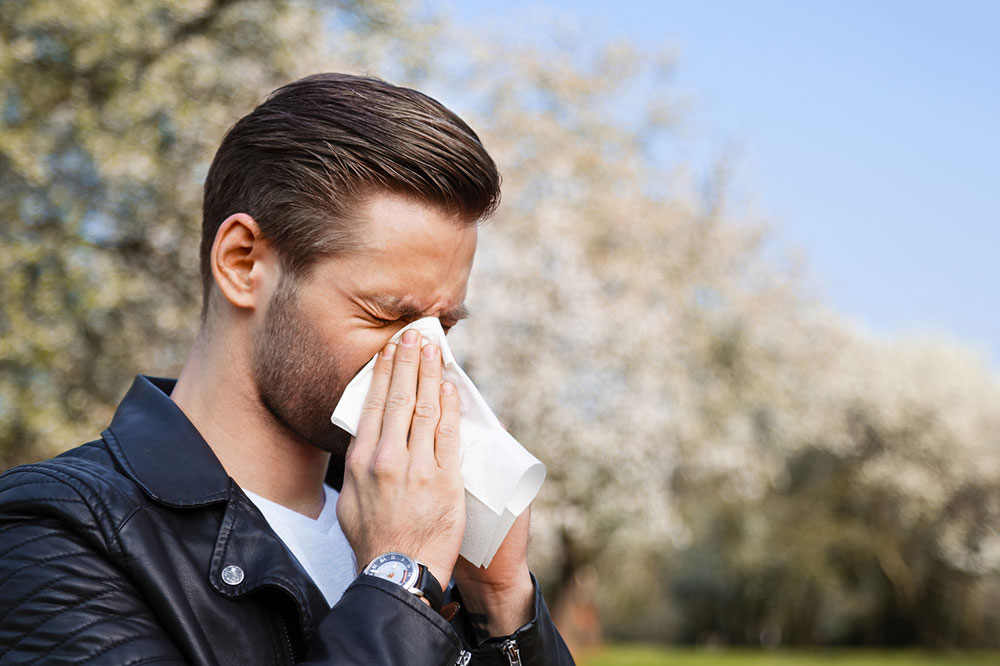Comprehensive Guide to Allergies: FAQs, Causes, and Management Strategies
Learn everything about allergies in this detailed guide, including their causes, symptoms, diagnosis, and management options. Discover practical tips to prevent allergic reactions and improve your quality of life. This comprehensive article offers insights into how the immune system responds to allergens and the latest treatments available. Whether you're dealing with seasonal allergies, food sensitivities, or insect bites, gain essential knowledge to help you navigate these common health issues effectively.

Comprehensive Guide to Allergies: FAQs, Causes, and Management Strategies
Allergies are a common health issue affecting millions worldwide. They occur when the immune system responds abnormally to substances that are usually harmless, known as allergens. These allergens can be found in various environments and foods, including airborne particles like pollen and pet dander, as well as certain foods and insect bites. Understanding the nature of allergies, their causes, symptoms, and management options is essential for anyone affected by them. This comprehensive guide aims to provide in-depth insights into allergies, answering frequently asked questions, and offering practical advice for managing allergic reactions effectively.
What Are Allergies?
Allergies are immune system overreactions to specific substances that typically do not cause harm in most people. When exposed to an allergen, the immune system perceives it as a threat and releases chemicals such as histamines, leading to various allergy symptoms. These symptoms can range from mild discomfort, like sneezing and itchy eyes, to severe conditions such as difficulty breathing or anaphylaxis, which can be life-threatening. The body's response varies depending on the allergen type and individual sensitivity. Recognizing and understanding these reactions is vital for managing allergic conditions effectively.
Symptoms of allergies are diverse and can manifest in various parts of the body. Commonly affected areas include the respiratory system, digestive system, and skin. Mild allergic reactions might involve symptoms like nasal congestion, sneezing, itchy or watery eyes, and skin rashes such as hives. In some cases, food allergies trigger mouth tingling, swelling, or digestive issues like nausea and vomiting. Severe allergic reactions might manifest as swelling of the throat, chest tightness, wheezing, rapid heartbeat, dizziness, or even loss of consciousness. In rare but critical cases, allergies can cause anaphylaxis—a rapid, whole-body response that demands immediate medical attention.
What Causes Allergies?
Although research is ongoing, scientists have identified several factors that contribute to allergy development. Genetics play a significant role—if a person has a family history of allergies or asthma, their chances of developing allergies increase. Environmental factors and lifestyle choices also influence allergy susceptibility. Common allergens include
Medications such as penicillin and other antibiotics, which can trigger allergic responses in some individuals.
Insect bites and stings from bees, wasps, or mosquitoes can cause allergic reactions ranging from localized swelling to systemic responses.
Foods are among the most common allergens, including dairy products, wheat, nuts, seafood, and soy. Food allergies can lead to severe reactions if the allergen is ingested.
Other contributing factors involve exposure to environmental pollutants and early childhood exposure to certain chemicals or allergens, which may sensitize the immune system. People with a family history of allergies, asthma, or eczema are at a heightened risk, illustrating the genetic component in allergy development.
Diagnosing and Managing Allergies
Effective allergy management begins with proper diagnosis. Doctors typically perform allergy tests, such as skin prick tests or blood tests, to identify specific allergens. Once diagnosed, individuals can adopt various strategies to minimize exposure and control symptoms. These include avoiding known allergens, taking antihistamines or other medications prescribed by healthcare professionals, and in some cases, undergoing immunotherapy (allergy shots) to desensitize the immune response over time.
Educating oneself about allergen sources and reading labels carefully can prevent accidental exposures. For severe allergies, carrying emergency medications like epinephrine auto-injectors is crucial for immediate response during an anaphylactic episode. Lifestyle modifications, such as creating allergen-free environments at home and work, maintaining good hygiene, and following dietary recommendations, are vital components of allergy management.
Understanding and managing allergies require ongoing attention and adjustment. Collaborating with healthcare providers ensures personalized treatment plans that improve quality of life and reduce the risk of severe reactions. Staying informed about new research and emerging treatment options can also be beneficial in long-term allergy care.
In conclusion, allergies are complex but manageable conditions. Recognizing the symptoms, understanding the causes, and implementing effective management strategies can significantly enhance the well-being of individuals affected by allergies. With proper precautions and medical guidance, living comfortably with allergies is achievable, empowering individuals to lead healthier lives and avoid potentially dangerous reactions.





